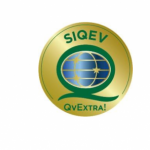Olive oil polyphenols are natural compounds with powerful antioxidant properties that help protect cardiovascular health. Their ability to combat oxidative stress makes them key allies in preventing high cholesterol, hypertension, and other heart diseases.
This harmful process occurs when there is an excess of free radicals in the body, which damage cells and blood vessels. This damage promotes the oxidation of “bad” cholesterol (LDL), which then builds up in the arterial walls, contributing to atherosclerosis and increasing blood pressure. This creates a cycle of chronic inflammation and cardiovascular risk.
How Do Free Radicals Affect the Heart?
When the body cannot efficiently eliminate free radicals, oxidative stress occurs. This imbalance damages endothelial cells—the inner lining of blood vessels—which impairs circulation and encourages the buildup of LDL cholesterol. The result is the formation of fatty plaques in the arteries, leading to blockages and elevated blood pressure.
This phenomenon is directly linked to diseases like heart attacks and strokes, so addressing oxidative stress is crucial for maintaining cardiovascular health.
Effects of Olive Oil Polyphenols on Oxidative Stress
This is where olive oil polyphenols come into play. Compounds like hydroxytyrosol, oleocanthal, oleacein, and oleuropein help neutralize the free radicals responsible for oxidative stress. Their action reduces LDL oxidation and protects the vascular endothelium.
Additionally, these natural antioxidants improve endothelial function, promoting blood vessel dilation and helping regulate blood pressure. Their anti-inflammatory properties also reduce arterial inflammation—an essential factor in heart disease prevention.
Why Olive Oil Rich in Polyphenols Protects Your Arteries
Not all olive oils provide the same benefits. For extra virgin olive oil (EVOO) to effectively reduce oxidative stress, it must contain at least 200 mg/kg of polyphenols. This is the minimum threshold for its cardioprotective effects to take place.
That’s why it’s essential to look for certified products. The SIQEV seal, awarded by QvExtra!, guarantees that the EVOO contains the necessary polyphenol levels and meets high quality standards.
How to Choose an Olive Oil High in Polyphenols
EVOO is not just a staple of the Mediterranean diet—it’s a natural tool for heart protection. Consuming high-quality extra virgin olive oil rich in polyphenols, such as those labeled with the SIQEV seal, helps lower LDL cholesterol, raise HDL cholesterol (the “good” kind), and regulate blood pressure.
Investing in good EVOO is truly an investment in cardiovascular health.
Bibliography
Aguilera, C. M., Mesa, M. D., Ramirez-Tortosa, M. C., Nestares, M. T., Ros, E., & Gil, A. (2004).
Sunflower oil does not protect against LDL oxidation as virgin olive oil does in patients with
peripheral vascular disease. Clinical nutrition, 23(4), 673-681.
Briones, A. M., & Touyz, R. M. (2010). Oxidative stress and hypertension: current
concepts. Current hypertension reports, 12, 135-142.
Elejalde Guerra, J. I. (2001). Estrés oxidativo, enfermedades y tratamientos antioxidantes.
In Anales de medicina interna (Vol. 18, No. 6, pp. 50-59).
Rodrigues-Díez, R., & Salaices, M. (2017). Cardiovascular risk factors and oxidative stress in
young people. Clinica e investigacion en arteriosclerosis: publicacion oficial de la Sociedad
Espanola de Arteriosclerosis, 29(5), 216-217.
Rodríguez, P. (2016). Implicación del estrés oxidativo en las alteraciones cardiovasculares
asociadas a la programación fetal de la hipertensión arterial.







